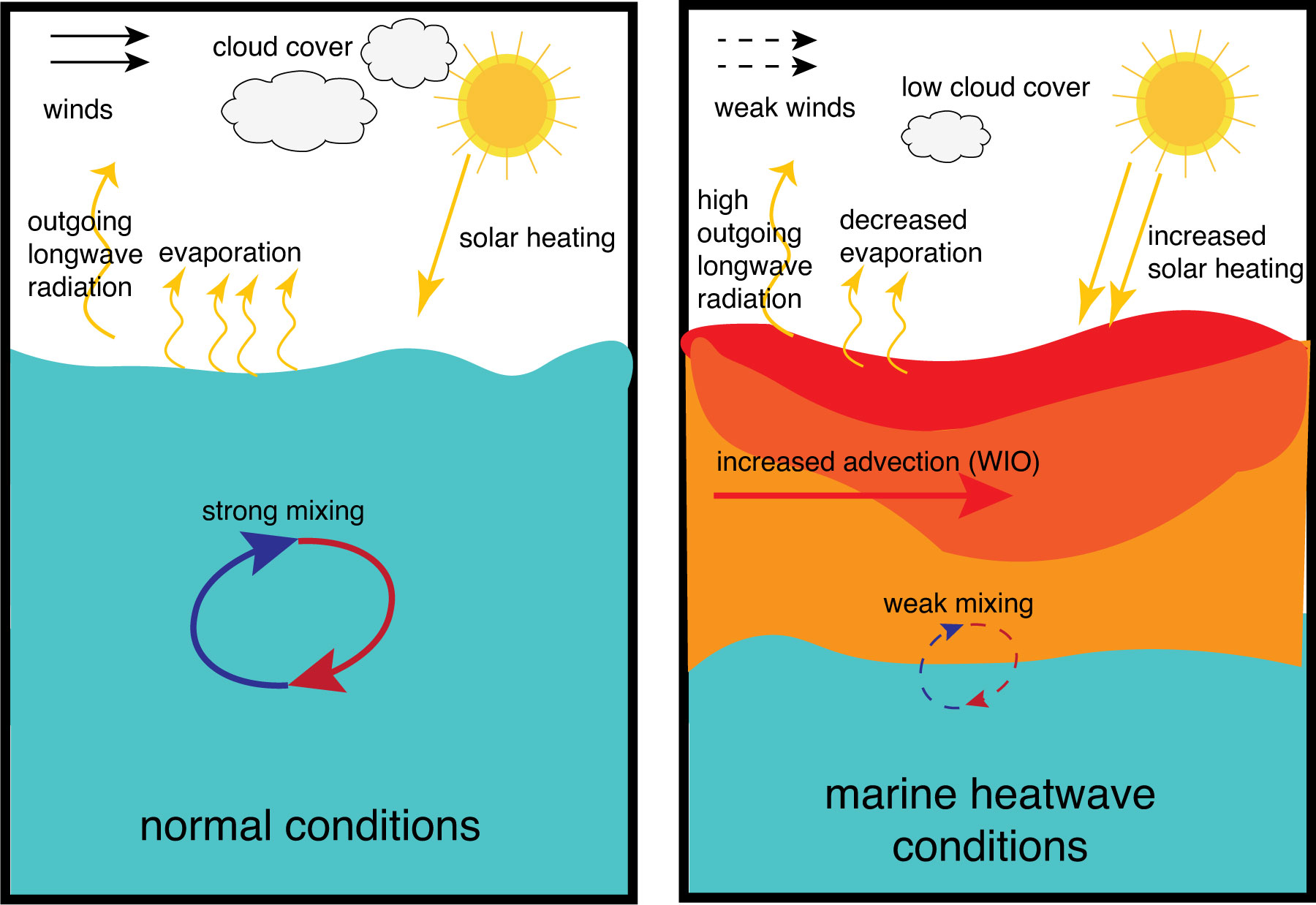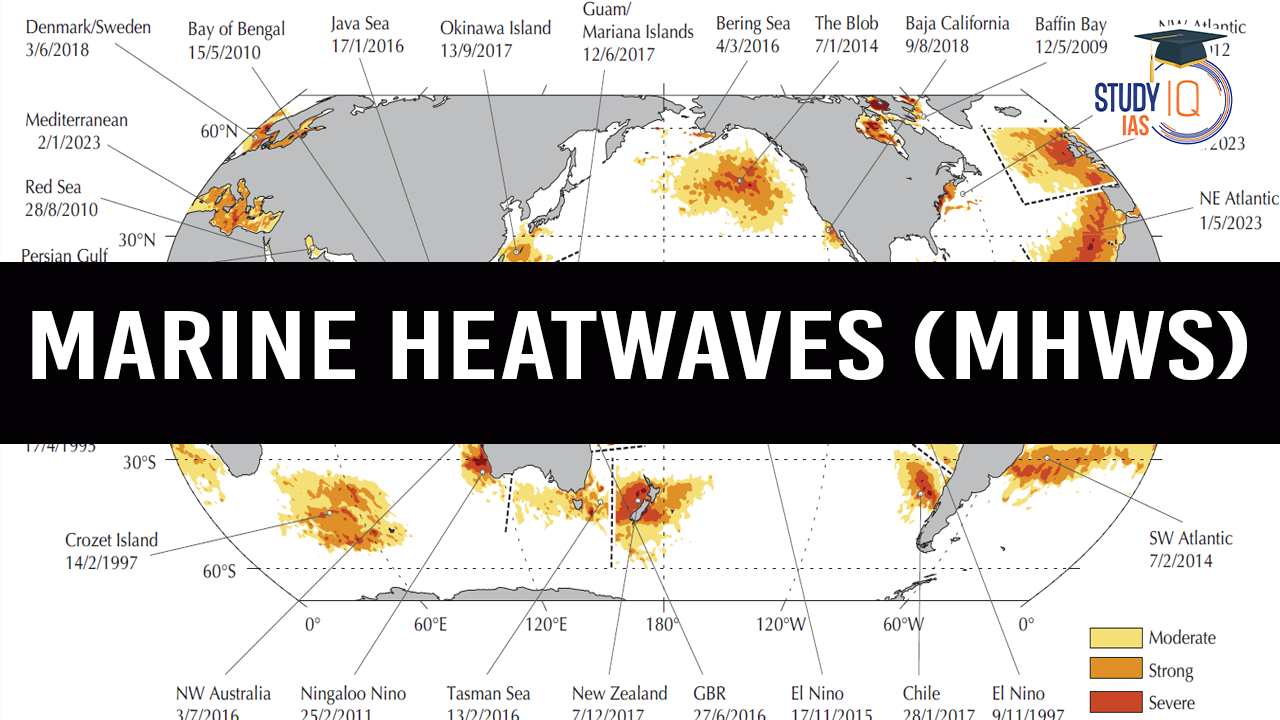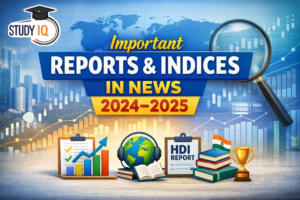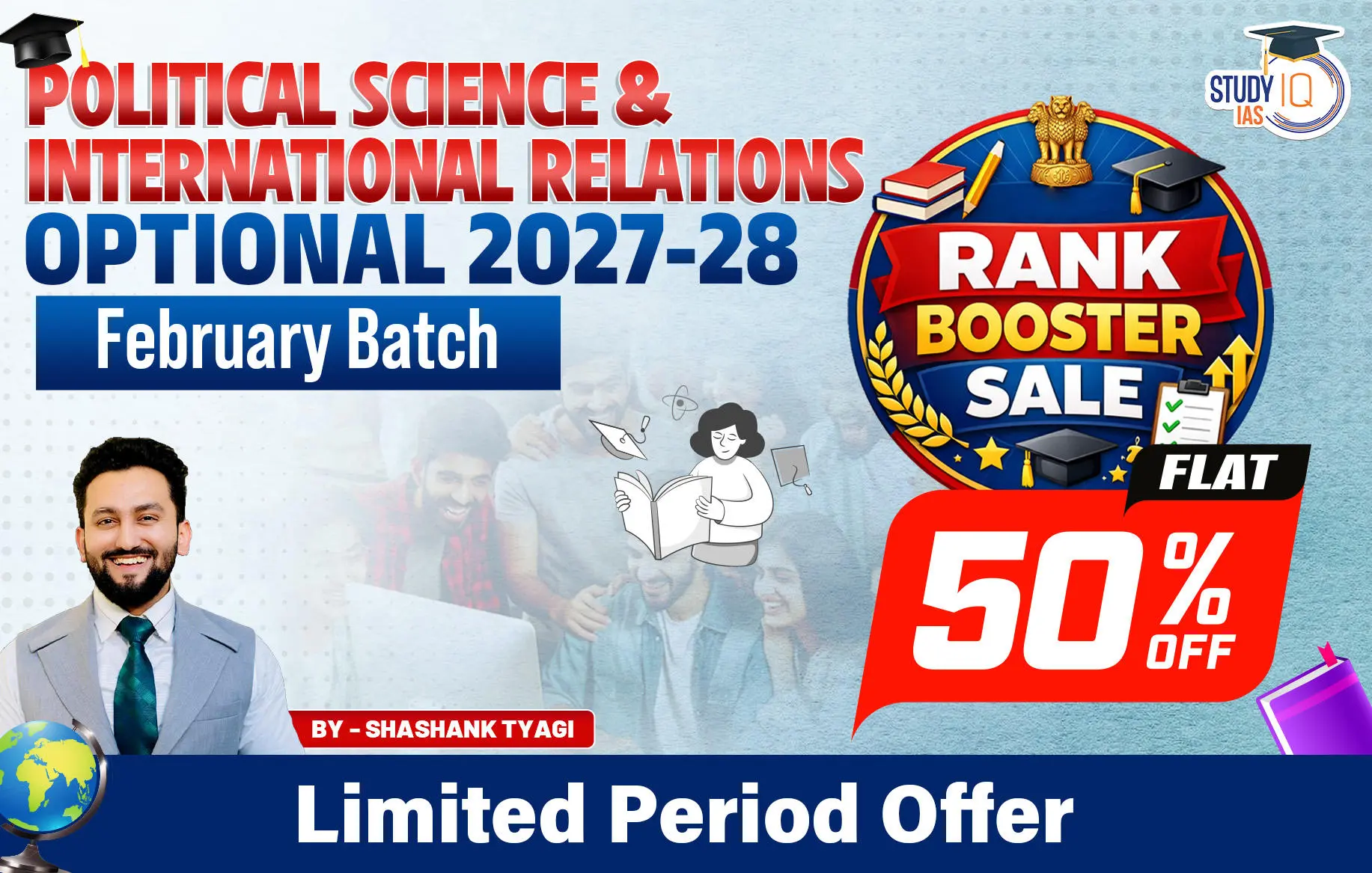Table of Contents
Context: The MHWs off the coast of Western Australia (WA) in January 2025 led to the death of over 30,000 fish according to a study conducted by the non-profit group Climate Central.
What Are Marine Heatwaves (MHWs)?
- MHWs are extreme oceanic heat events, where sea surface temperatures (SST) rise 3-4°C above normal for at least five days.
- They can last for weeks, months, or years, affecting large marine ecosystems.
- Studies show MHWs have become twice as frequent since 1982, with a 50% increase in duration over the past decade.

Reasons behind MHWs in this zone
- It is primarily driven by Eddy currents.
- Eddy currents are large, swirling loops of water that transport warm or cold water over long distances.
Why Have Marine Heatwaves Intensified?
Climate Change
- 90% of global warming’s excess heat is absorbed by oceans, raising SST.
- Since 1850, global SST has risen by 0.9°C, with 6°C of this occurring in the last 40 years.
Projected Increase in MHWs
- At 5°C warming, MHWs could be 16 times more frequent.
- At 0°C warming, they could be 23 times more frequent.
Western Australia’s Increasing Anomalies
- September 2024: SST anomalies were 2°C above normal.
- January 2025: SST anomalies crossed 2°C multiple times, worsening the MHWs.
Impact of Marine Heatwaves
Ecosystem Disruptions: These events cause habitat destruction due to coral bleaching, seagrass destruction, and loss of kelp forests, affecting the fisheries sector.
- Eg., An underwater survey showed that 85% of the corals in the Gulf of Mannar near the Tamil Nadu coast got bleached after the marine heatwave in May 2020.
- Kelp Forest Destruction: Kelps thrive in cool waters, and MHWs destroy these habitats, impacting marine biodiversity.
- Coral Bleaching: Warmer waters stress corals, reduce their reproduction, and make them vulnerable to diseases.
- 2024 Great Barrier Reef Bleaching: Reached “catastrophic” levels due to MHW-induced stress, marking its seventh mass bleaching event.


 Important Reports and Indices in News (2...
Important Reports and Indices in News (2...
 Supreme Court to Examine Scope of 'Right...
Supreme Court to Examine Scope of 'Right...
 Why Iran Matters More Than Venezuela: En...
Why Iran Matters More Than Venezuela: En...

























